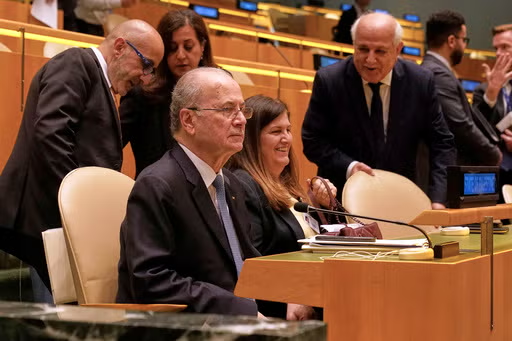
France and Saudi Arabia have launched a joint diplomatic initiative at the United Nations aimed at reviving the long-stalled Israeli-Palestinian peace process and pushing forward the two-state solution. The high-level conference, held in New York on July 28–29, drew participation from over 120 countries although the United States and Israel were notably absent. The conference was co-chaired by French Foreign Minister Jean-Noël Barrot and Saudi Foreign Minister Prince Faisal bin Farhan. Both leaders emphasized the urgency of establishing an independent Palestinian state with East Jerusalem as its capital, a vision rooted in the pre-1967 borders and long endorsed by the UN. According to AP News, Barrot asserted there was “no alternative” to the two-state solution, framing it as the only viable path to “lasting peace, regional stability and Israel’s long-term security.” Prince Faisal reinforced this view, stating the recognition of Palestinian statehood is “the real gateway to achieving peace in the region.” As reported by Anadolu Agency, the Saudi foreign minister pledged $300 million in humanitarian aid to Gaza and the West Bank, underscoring the Kingdom’s commitment to reconstruction and institutional development.
Unlike previous conferences, the New York conference sought to produce actionable outcomes. The joint French-Saudi roadmap includes proposals for timelines, accountability measures and structural reforms, including the demilitarization of Hamas and revitalization of the Palestinian Authority. As reported by Israel Hayom, the plan notably bypasses Israeli participation at this stage, raising concern in Jerusalem about unilateral moves. The document also outlines consequences for non-compliance and calls on the European Union to pressure Israel to halt settlement expansion and release nearly €2 billion owed to the Palestinian Authority. Arab countries are also working to issue a joint condemnation of Hamas in exchange for broader international recognition of a reformed Palestinian government.
The initiative follows months of intense diplomacy. In May, Saudi Arabia hosted a ministerial meeting in Paris with Egypt, Jordan and France to prepare the groundwork for the UN conference. Saudi Gazette reported that the meeting focused on ceasefire efforts in Gaza, rebuilding the Palestinian territories and expanding Arab-European cooperation on peace negotiations. French President Emmanuel Macron, speaking earlier during a visit to Cairo, expressed support for the Arab League’s Gaza reconstruction plan and stressed the need for an immediate ceasefire and release of hostages. Anadolu Agency highlighted Macron’s commitment to co-hosting the peace forum and his condemnation of any attempt to annex Gaza or the West Bank as violations of international law.
The initiative has faced strong criticism from both Israel and the United States. The U.S. State Department called the conference “counterproductive,” warning it could undermine existing diplomatic frameworks. Israeli officials expressed concern that unilateral recognition of a Palestinian state would embolden Hamas and sideline Israel in peace negotiations. Despite such opposition, analysts argue that international momentum is building in favor of Palestinian statehood. In a Washington Post opinion column, Saudi commentator Ali Shihabi contended that delaying recognition would erode the legitimacy of moderate voices in the Palestinian territories.
France is expected to recognize Palestinian statehood at the upcoming UN General Assembly session in September, making it the first permanent member of the Security Council to do so. As Reuters reported, Macron’s decision was driven by growing frustration over the humanitarian crisis in Gaza and international paralysis. This move may signal a broader European realignment. Several EU member states including Germany, Ireland and Spain are considering following France’s lead.
By bringing the question of Palestinian statehood back into the global spotlight and anchoring it in a multilateral UN process, the two nations have elevated the urgency of resolution after months of war, famine and displacement in Gaza. International frustration over civilian casualties and policy inertia has reached a boiling point. With the September UN vote looming, pressure is mounting for world powers to either endorse statehood or present a credible alternative before the two-state solution becomes a relic of history.
Written by Vandan Parakh


